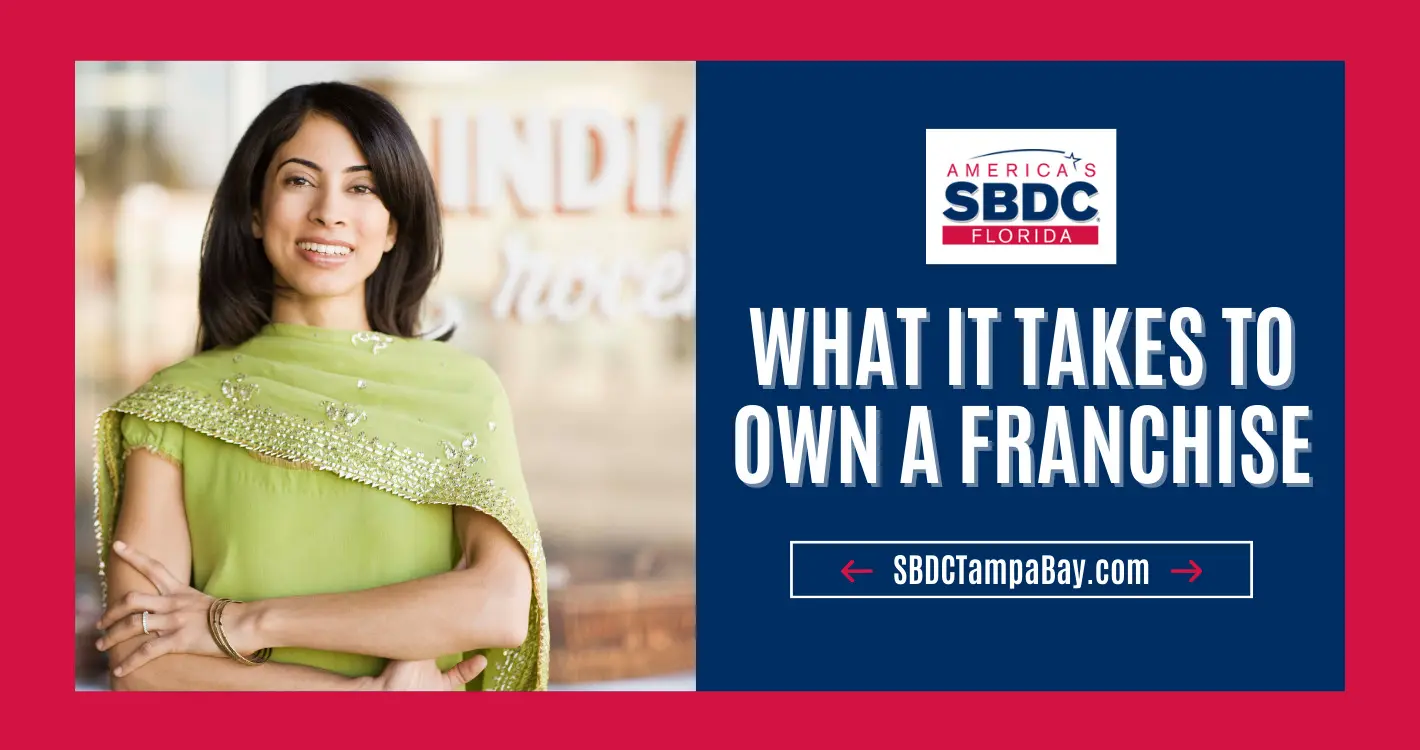Franchising Series: The Disadvantages of Being a Franchise Owner
by Brad Mix | November 1, 2022
In part one of this series, we itemized the advantages of owning a franchise versus starting your own business from scratch. But there’s also a flipside. Below, we’ll outline the disadvantages of franchising, for the franchisee.
Disadvantages of Franchising for the Franchisee
Higher Start-up Costs: One of the biggest disadvantages to franchises is the initial investment is significantly higher than starting a business on your own. One of the best examples is house cleaning franchises. Merry Maids, the largest house cleaning franchise, require new franchisees have a minimum of $70,000 in liquid capital with a total start-up investment of $94,480 – $144,425.
An entrepreneur with a car can boot strap a home cleaning business for less than $100. Just grab your vacuum out of the closet, buy some cleaning supplies at Home Depot and you’re in business with minimum out of pocket expenses.
The Merry Maids’ earning claims indicates the top quartile performing franchisees achieve an average annual Gross Sales of $1,913,114, which is significantly higher than most independently-owned house cleaning businesses.
Keep in mind the earnings claim is for the top performing franchise owners. It is important to determine the mode average and the bottom quartile of franchisees’ sales, which will be disclosed in the Franchise Disclosure Document (FDD).
According to the International Franchise Professional Group, the initial investment to own a McDonald’s franchise is between $464,500 – $2,306,500 with a liquid cash requirement of $500,000.
Lack of Autonomy: As a franchise owner, you are your own boss, but you still under the control of the franchisor. For instance, if you are a restaurant franchisee, you cannot change the menu or change hours of operations. You are required to follow the rules and regulations, policies and procedures outlined in the franchise agreement.
Ongoing Financial Obligation to Franchisor: As a franchisee you are required to pay royalties based on your monthly gross sales to the franchisor. The franchise royalties range from between 5 to 6 percent of sales for retail franchises and 8 to 10 percent of sales for service franchises. In addition, some franchises also charge franchisees a cooperative advertising fee of 2 to 3 percent of sales, which finances the franchisor local, regional, and national advertising campaign. As a potential franchisee, you want to determine how much advertising the franchisor is spending in your geographic market to determine if you are benefiting from the cooperative advertising campaign.
Finding Franchise Opportunities: The Internet has a plethora of information on franchising and franchise opportunities. The following are three of the more popular websites on franchising:
Franchise Opportunities, Franchises for Sale & Franchising Information
International Franchise Association (IFA) – 1400+ Franchise Opportunities
https://www.entrepreneur.com › franchises
Entrepreneur’s Franchise Explorer – Franchise Opportunity Listings and …
Franchise Consultants: There are consulting firms that specialize in helping individuals who are interested in franchise business ownership. Their franchise expert’s role is to educate individuals on the franchise industry and help them find the right franchise opportunity based on their interests, goals, skill sets, and personal financial position. Their services are 100 percent free to prospective franchisees; the consultants are paid by the franchiser when an individual purchases a franchise; similar to a real estate agent who is compensated by the seller on the sale of a house.
The following are three of the most popular franchise consulting firms:
Now that we’ve covered the advantages and disadvantages of becoming a franchise owner, our final article in this series will focus on the process of buying a franchise, and how to evaluate franchise opportunities.





Brad Mix
Consultants, Growth Acceleration Consultants, Manatee, Mix, SarasotaFlorida SBDC at USF
Specialty: Capital Access, Startup
Brad Mix has more than 20 years of experience in the financial services industry and as a business consultant. Prior to joining the Florida SBDC at USF, Mix provided consulting services to more than 2,500 businesses and assisted business owners in securing more than $100 million in capital and $60 million in government contracts. He has extensive experience with SBA loans, including 504s, Community Advantage loans, and microloans. In addition, he assists business owners in preparing business plans, financial projections, profitability improvement, business acquisitions, business valuations, marketing and capital solutions. He joined the Florida SBDC at USF in April 2020, after spending 20 years as a consultant and satellite manager for the Coachella Valley SBDC, located in Palm Springs, Ca. In 2005, he was awarded the California State Star Award by the California SBDC Network. He is a certified Associate Business Continuity Professional (ABCP).